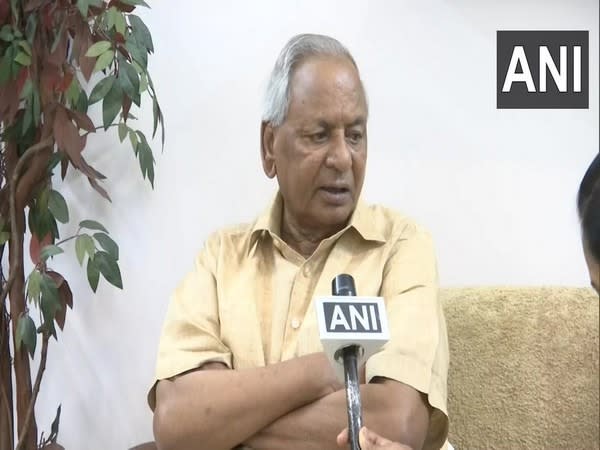Kalyan Singh was face of Ram temple movement, expanded BJP's social base

By Prashant Sood
New Delhi [India], August 21 (ANI): Former Uttar Pradesh Chief Minister Kalyan Singh, who passed away on Saturday, was closely associated with the Ram Temple movement and was one of the most prominent leaders of BJP who helped shape its rise in the most populous state of the country.
Kalyan Singh became Uttar Pradesh Chief Minister for the first time in 1991 as BJP gained support over its demand for the construction of Ram Temple at the birthplace of Lord Ram in Ayodhya.
Hailing from the Lodh community, Kalyan Singh helped BJP expand its social base among OBCs and weaker sections, especially in Uttar Pradesh. His political and administrative decisions also contributed to BJP's rise in the state after the party first came to power in 1991.
A two-time Chief Minister and a former governor of Rajasthan, Kalyan Singh also held various organisational posts in the BJP, both in the state and the central level.
Articulate and politically suave, Kalyan Singh was the Hindutva face of the BJP in Uttar Pradesh during the Ayodhya movement and resigned in the aftermath of the demolition of Babri masjid in December 1992. His government had submitted an affidavit in the court that it will not permit damage to the mosque.
His government went ahead acquiring 2.27 acres around the disputed site in Ayodhya and building the Ram Chabutra close by. In an interview, Kalyan Singh had said he refused to give orders for firing on Kar Sewaks.
The 89-year-old leader was popularly known as 'Babuji'. Kalyan Singh was associated with the RSS and was also a member of Bharatiya Jana Sangh.
Kalyan Singh twice left the BJP only to return to the party. He left the party for the first time in December 1999 and returned to it in January 2004 before the Lok Sabha elections. He again resigned from the party in January 2009 to form Jan Kranti Party.
Born on January 5, 1932 in Aligarh district, Kalyan Singh was first elected to the Uttar Pradesh assembly in 1967 and became a minister in the Uttar Pradesh government for the first time in 1977.
Kalyan Singh had welcomed the Supreme Court judgement of November 2019 paving the way for the construction of the grand Ram temple at Ayodhya.
"Everyone has welcomed and accepted the Supreme Court decision which is just and legal and all-inclusive. It has put an end to a 500-year-old dispute," he had said.
He had also said that the court had done the right thing by entrusting the construction of the Ram temple to a trust.
The work on the construction of a grand Ram Temple, for which Kalyan Singh worked all his life, is going on in full swing and the temple is expected to be opened for devotees by end of 2023.
A special CBI court had in September last year acquitted all the accused including Kalyan Singh in the Babri Masjid demolition case.
Kalyan Singh became chief minister again in 1997 according to a power-sharing agreement between the BJP and the BSP.
The BSP withdrew support to the government and he continued as chief minister as a faction of Congress extended support. The government was dismissed in 1998. Uttar Pradesh will again go to the polls early next year and the BJP government in the state will seek another term in office.
BJP leaders paid glowing tributes to Kalyan Singh.
Prime Minister Narendra Modi described him as a statesman, veteran administrator, grassroots level-leader and great human and said he leaves behind an indelible contribution towards the development of Uttar Pradesh.
"Generations to come will remain forever grateful to Kalyan Singh Ji for his contributions towards India's cultural regeneration. He was firmly rooted in Indian values and took pride in our centuries-old traditions," the Prime Minister said.
Defence Minister Rajnath Singh said Kalyan Singh left an indelible impression on the country and society through his work and personality. (ANI)

